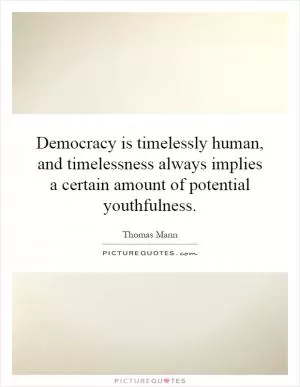Opinions cannot survive if one has no chance to fight for them

Opinions cannot survive if one has no chance to fight for them
Thomas Mann, a renowned German novelist and essayist, was a firm believer in the power of opinions and the importance of defending them. Throughout his works, Mann often explored the complexities of human thought and the necessity of engaging in intellectual discourse to uphold one's beliefs.Mann understood that opinions are not static entities but rather dynamic constructs that are constantly challenged and tested. He believed that opinions could only truly thrive and evolve if individuals were given the opportunity to defend them in the face of opposition. In his novel "The Magic Mountain," Mann delves into the world of a sanatorium where patients engage in heated debates about various philosophical and political ideologies. Through these discussions, Mann highlights the importance of intellectual confrontation in shaping and solidifying one's beliefs.
Mann also believed that the ability to defend one's opinions was essential for personal growth and intellectual development. In his essay "On the Uses of a Liberal Education," Mann argues that the true purpose of education is to cultivate critical thinking skills and the ability to engage in meaningful dialogue with others. He believed that by challenging and defending their opinions, individuals could deepen their understanding of themselves and the world around them.
Furthermore, Mann recognized that the suppression of dissenting opinions could have dangerous consequences for society as a whole. In his novel "Doctor Faustus," Mann explores the rise of fascism in Germany and the chilling effects of censorship on intellectual freedom. Through the character of Adrian Leverkühn, a composer who aligns himself with the Nazi regime, Mann illustrates the destructive power of silencing dissent and the importance of standing up for one's beliefs, even in the face of overwhelming opposition.












 Friendship Quotes
Friendship Quotes Love Quotes
Love Quotes Life Quotes
Life Quotes Funny Quotes
Funny Quotes Motivational Quotes
Motivational Quotes Inspirational Quotes
Inspirational Quotes